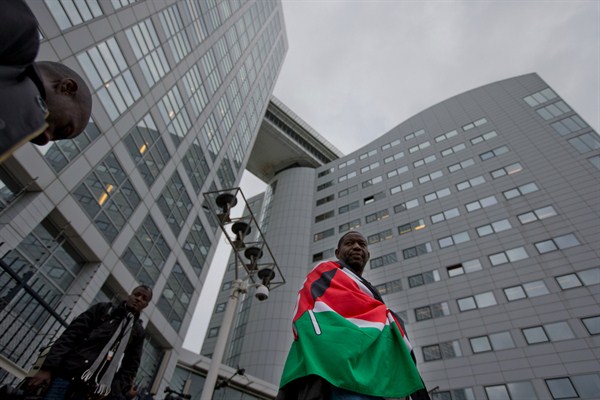Africa’s long-simmering tensions with the International Criminal Court appear to be boiling over. After years of allegations that the ICC has focused solely on the African continent, while letting abuses in other parts of the world go unpunished, three countries are now preparing to withdraw from the statute authorizing the court. Burundi began the process to leave the court last month, followed in quick succession by South Africa and, last week, Gambia.
More are expected, especially given South Africa’s prominent role as the continent’s second-largest economy and a regional leader. Kenya, Namibia and Uganda have all expressed unease with the ICC in the past. A mass African exodus will be a “hot issue” at an African Union summit in January, according to Uganda’s deputy foreign minister, Oryem Okello.
When the Rome Statute that created the ICC was first adopted in 1998, some of its biggest boosters were African leaders struggling to consolidate political power in the aftermath of wars and other internal conflicts, or dealing with ongoing separatist movements and insurgencies. The first country to ratify the Rome Statute the following year was Senegal. More recently, Archbishop Desmond Tutu of South Africa called it “Africa’s court.”

